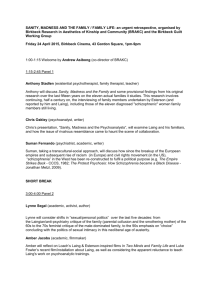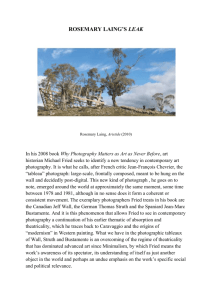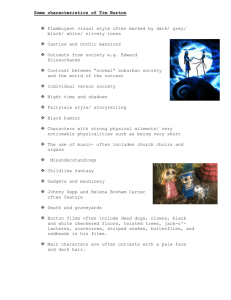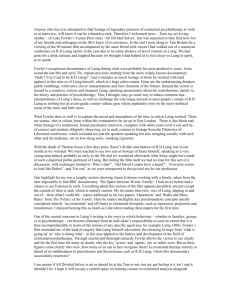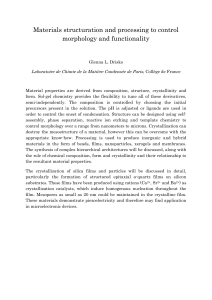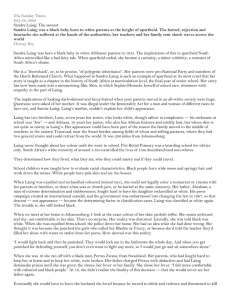Nicholas Rombes's 460-‐Word Sentence
advertisement
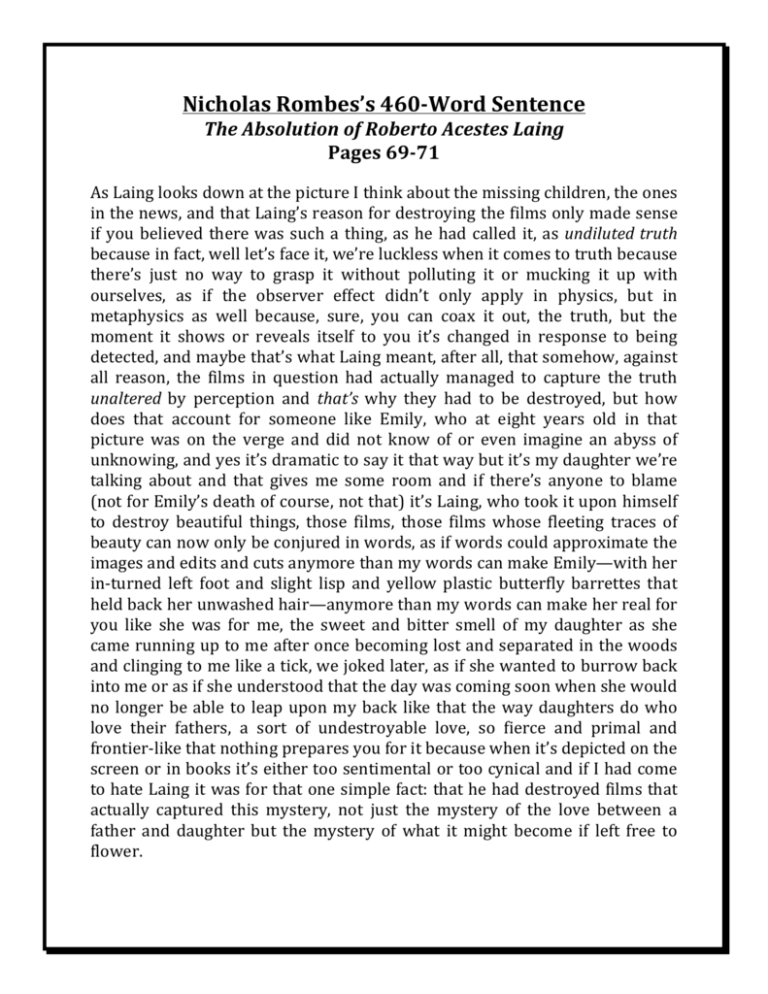
Nicholas Rombes’s 460-­‐Word Sentence The Absolution of Roberto Acestes Laing Pages 69-­‐71 As Laing looks down at the picture I think about the missing children, the ones in the news, and that Laing’s reason for destroying the films only made sense if you believed there was such a thing, as he had called it, as undiluted truth because in fact, well let’s face it, we’re luckless when it comes to truth because there’s just no way to grasp it without polluting it or mucking it up with ourselves, as if the observer effect didn’t only apply in physics, but in metaphysics as well because, sure, you can coax it out, the truth, but the moment it shows or reveals itself to you it’s changed in response to being detected, and maybe that’s what Laing meant, after all, that somehow, against all reason, the films in question had actually managed to capture the truth unaltered by perception and that’s why they had to be destroyed, but how does that account for someone like Emily, who at eight years old in that picture was on the verge and did not know of or even imagine an abyss of unknowing, and yes it’s dramatic to say it that way but it’s my daughter we’re talking about and that gives me some room and if there’s anyone to blame (not for Emily’s death of course, not that) it’s Laing, who took it upon himself to destroy beautiful things, those films, those films whose fleeting traces of beauty can now only be conjured in words, as if words could approximate the images and edits and cuts anymore than my words can make Emily—with her in-­‐turned left foot and slight lisp and yellow plastic butterfly barrettes that held back her unwashed hair—anymore than my words can make her real for you like she was for me, the sweet and bitter smell of my daughter as she came running up to me after once becoming lost and separated in the woods and clinging to me like a tick, we joked later, as if she wanted to burrow back into me or as if she understood that the day was coming soon when she would no longer be able to leap upon my back like that the way daughters do who love their fathers, a sort of undestroyable love, so fierce and primal and frontier-­‐like that nothing prepares you for it because when it’s depicted on the screen or in books it’s either too sentimental or too cynical and if I had come to hate Laing it was for that one simple fact: that he had destroyed films that actually captured this mystery, not just the mystery of the love between a father and daughter but the mystery of what it might become if left free to flower.
